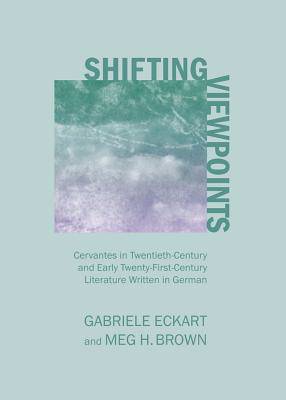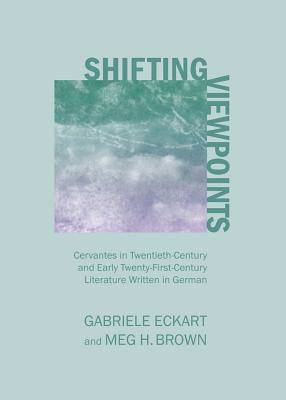
- Afhalen na 1 uur in een winkel met voorraad
- Gratis thuislevering in België vanaf € 30
- Ruim aanbod met 7 miljoen producten
- Afhalen na 1 uur in een winkel met voorraad
- Gratis thuislevering in België vanaf € 30
- Ruim aanbod met 7 miljoen producten
Zoeken
Shifting Viewpoints: Cervantes in Twentieth-Century and Early Twenty-First-Century Literature Written in German
Cervantes in Twentieth-Century and Early Twenty-First-Century Literature Written in German
Meg H Brown, Gabriele Eckart
Hardcover | Engels
€ 62,95
+ 125 punten
Omschrijving
This study shows that Cervantes's works actively influenced the literature of a number of twentieth- and early twenty-first-century writers in Germany, Austria, and Switzerland. This time period was marked by numerous significant events, including World War I, the first attempts at democracy, the rise of the Nazis, World War II, the division of Germany, and the eventual reunification of Germany. Representations of characters created by Cervantes reflect the shifting viewpoints of monarchism, imperialism, communism, fascism, socialism, and capitalism. A number of German-speaking authors of this time creatively modify Don Quixote, vacillating between regarding Don Quixote as a fool or a hero. The emphasis here is on the question of how an author uses Cervantes's Don Quixote and The Conversation of the Dogs to come to terms with his or her own preoccupations in a given socio-political context. This book explores literary works by German-speaking authors that engage in an intertextual play with a text written by Cervantes.
Specificaties
Betrokkenen
- Auteur(s):
- Uitgeverij:
Inhoud
- Aantal bladzijden:
- 270
- Taal:
- Engels
Eigenschappen
- Productcode (EAN):
- 9781443851350
- Verschijningsdatum:
- 1/10/2013
- Uitvoering:
- Hardcover
- Formaat:
- Genaaid
- Afmetingen:
- 150 mm x 208 mm
- Gewicht:
- 498 g

Alleen bij Standaard Boekhandel
+ 125 punten op je klantenkaart van Standaard Boekhandel
Beoordelingen
We publiceren alleen reviews die voldoen aan de voorwaarden voor reviews. Bekijk onze voorwaarden voor reviews.








